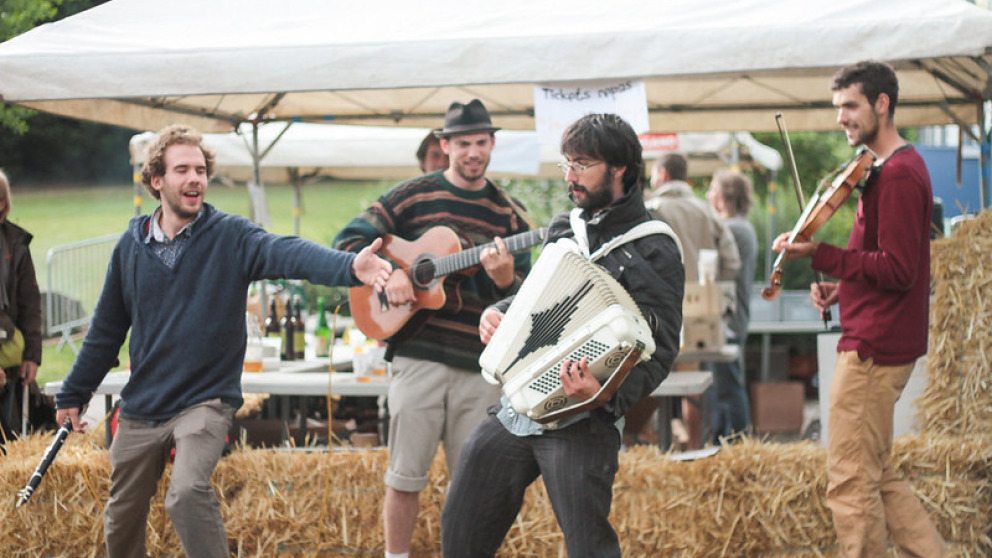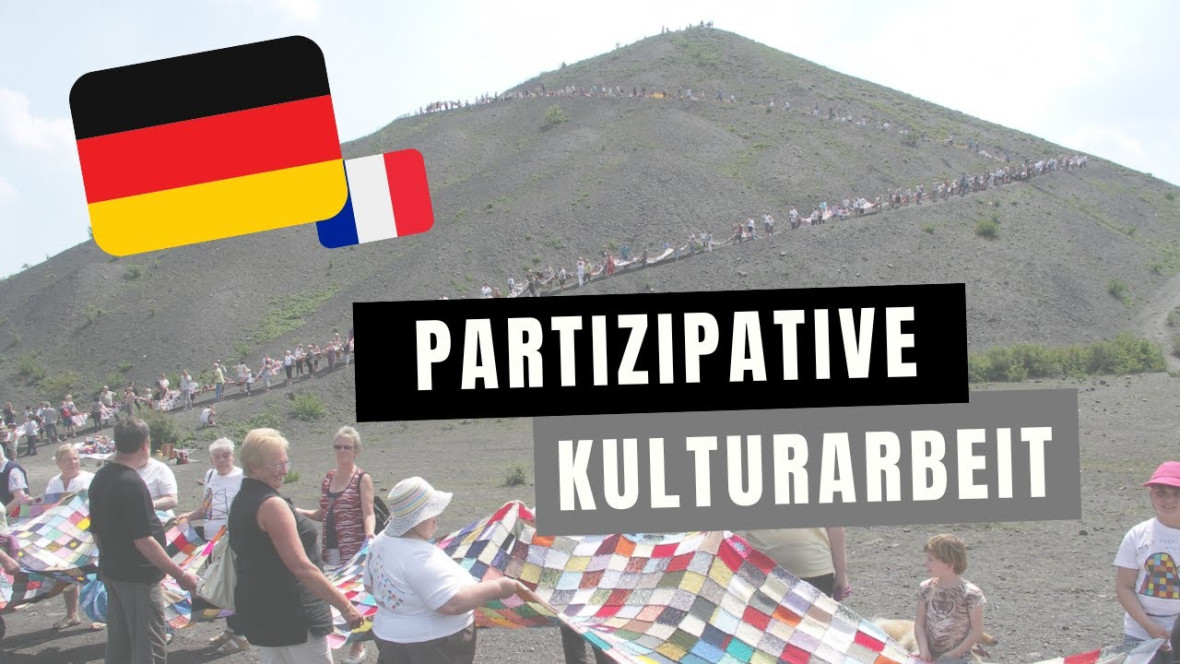How Culture Helped a Mining Town in Northern France Go Green
04.12.2023

The small town of Loos-en-Gohelle in the north of France is a fascinating example of how culture can be harnessed to foster socio-ecological change. We were so intrigued by this story of transformation that we decided to take a closer look. Our findings are published in a new RIFS Study.
Loos-en-Gohelle: A town transformed
When the coal mines around Loos-en-Gohelle closed in the 1980s, the small French town soon slipped into a state of structural crisis. Today, Loos-en-Gohelle is in a better economic position than its neighbours, with fewer vacant apartments and better employment figures. And that’s not all: Loos-en-Gohelle has become a pilot town for sustainable development, with rooftop photovoltaic systems, green renovation and construction, and sustainable mobility options. At the Franco-German Forum for the Future, we asked ourselves: How did Loos-en-Gohelle achieve this? What steps did it take to go from a black (coal) to a green (sustainable) city?
In the midst of the crisis, Loos-en-Gohelle put participatory cultural initiatives on its political agenda. At the annual Les Gohélliades festival, residents were able to tell their stories, mourn their shared history, and look to the future together. In time, this "storytelling" became something akin to an act of liberation, as Geoffrey Mathon, deputy mayor of Loos-en-Gohelle, recounts: "People have such a strong need to express their anger, their sense of injustice, their pain! It is vital that we create spaces for this. We must use this energy to take action and dare to innovate." Since then, participatory cultural formats have helped shape local politics. Together with the community, the local government has worked to develop a range of sustainable projects – from organic horticulture to installing photovoltaic systems.
Cultural participation is an ideal tool to facilitate place-based urban development, even if its methods, such as storytelling, seem unusual.
Media
The transformative power of participatory cultural work

Studying the role of participatory cultural work
Our research focussed on: How does the local council’s approach to culture and participation differ from that of other towns? To what extent has it initiated a transformation process that differs from that pursued in other cities and towns in the mining districts of northern France? And how is this cultural work perceived by the local community? Our findings are presented in the RIFS Study Loos-en-Gohelle und sein kulturelles Ökosystem (“Loos-en-Gohelle and its cultural ecosystem”). The study shows how involving citizens in cultural work can have a powerful transformative effect. However, it also reveals the need to constantly reinvent and renew approaches to cultural participation in order to maintain momentum.
Participatory cultural work requires the support of political institutions
The Franco-German Forum for the Future is tasked with developing concrete recommendations for action for the governments of France and Germany as well as for local authorities in both countries with the aim of accelerating socio-ecological transformations at municipal level. The experiences of towns such as Loos-en-Gohelle are an important source of learning for our work. In 2021 and 2022, we established a dialogue between Loos-en-Gohelle and several municipalities in Germany that face similar challenges. In a series of transdisciplinary workshops supported by experts, representatives from the participating towns developed seven key recommendations for action.
One of these recommendations called on national authorities to strengthen and pursue local participatory cultural activities as a central lever for socio-ecological transformations. This recommendation reflects the insight that not every local authority can achieve the success seen in Loos-en-Gohelle without support. A national service centre on participatory culture could provide much-needed support to many municipalities.
Link to the study (in German and French):
- Florentin, D., Veys, M., Robic, N., & Faltermeier, K. (2023). Loos-en-Gohelle und sein kulturelles Ökosystem: Partizipative Kulturarbeit als Grundlage für raum-bezogene Identifikation und gesellschaftlichen Zusammenhalt. RIFS Study, November 2023. https://doi.org/10.48481/rifs.2023.029
- Florentin, D., Veys, M., Robic, N., & Faltermeier, K. (2023). Loos-en-Gohelle et son écosystème culturel. RIFS Study, Novembre 2023. RIFS Study, November 2023


